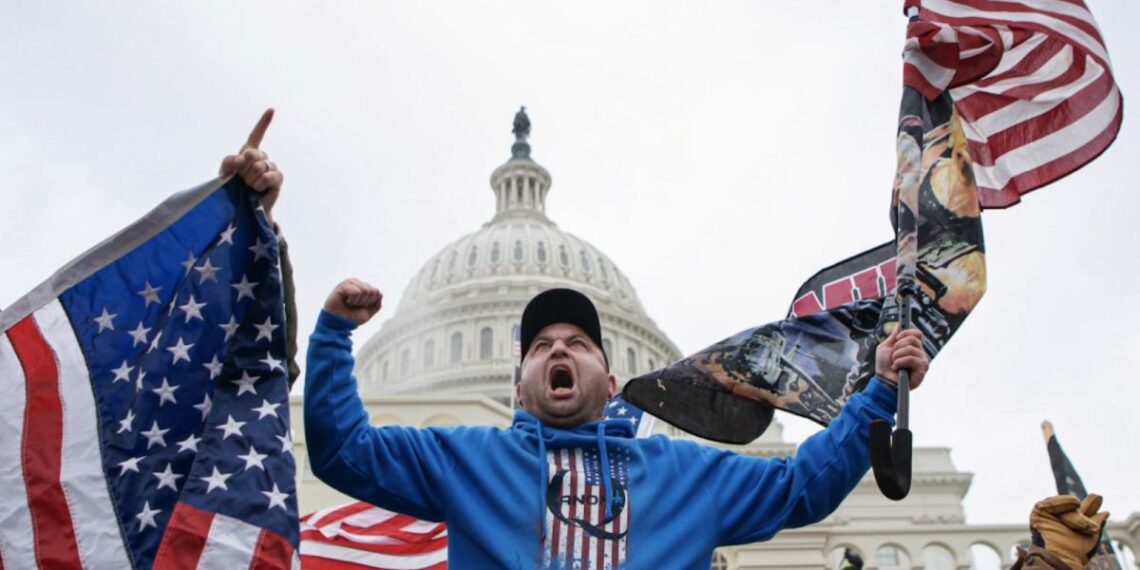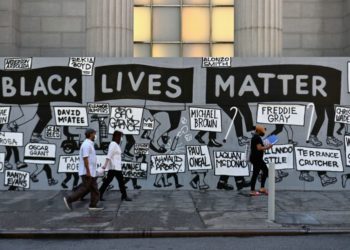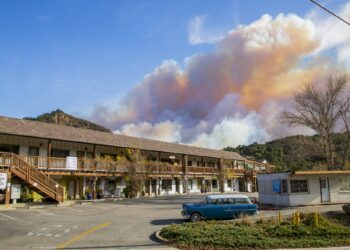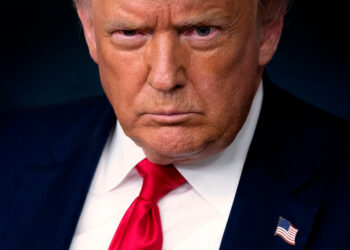On January 6, we witnessed history being made.
Reverend Raphael Warnock became the first Black Democratic Senator from a formerly Confederate State, while Jon Ossoff, the Jewish son of an immigrant, became the youngest newly elected Democratic senator since Joe Biden in 1973.
Their victories gave control of the Senate to the Democrats and provided hope for minoritized populations who have endured a difficult four years under the current administration.
However, “hope” is not the word that will most likely come to mind when one thinks of January 6, 2021. Instead, this date will be forever remembered as a dark day in the history of our country, in the history of democracy, in the history of freedom, and in the history of humanity.
Dark Days
We have faced dark days in the past; ones that have tested us in ways we never thought possible.
This past year we have been confronted with an unprecedented number of challenges, each one forcing us to examine our individual beliefs about what it means to be a member of humankind during both a pandemic and a critical moment for social justice and human dignity.
History reminds us that even in these exceptional times, there are lessons to be learned from the darkness, and that we have a responsibility to do whatever we can to seek out the light.
Taking Sides
Upon accepting his Nobel Peace Prize in 1986, Elie Wiesel told a story of a little boy learning of the atrocities of the Holocaust.
The boy asked his father, “Can this be true? This is the twentieth century, not the Middle Ages. Who would allow such crimes to be committed? How could the world remain silent?”
When the boy turned to Wiesel for an answer, he explained that the world did indeed know of the crimes that were being committed but remained silent. “And that is why I swore never to be silent whenever and wherever human beings endure suffering and humiliation,” Wiesel stated.
“We must take sides. Neutrality helps the oppressor, never the victim. Silence encourages the tormentor, never the tormented. Sometimes we must interfere. When human lives are endangered, when human dignity is in jeopardy, national borders and sensitivities become irrelevant. Wherever men and women are persecuted because of their race, religion, or political views, that place must-at that moment- become the center of the universe.”
Silence Is Complicity
And so today, Washington, DC, for so long considered to be the heart of democracy and freedom, must be the place where we concentrate our attention – the center of our collective universe.
The images from the events that took place at DC will remain indelible, imprinted upon our memories: a Confederate flag inside the Capitol building, men wearing sweatshirts that said “Camp Auschwitz” and “6MWE,” which stands for 6 million wasn’t enough.
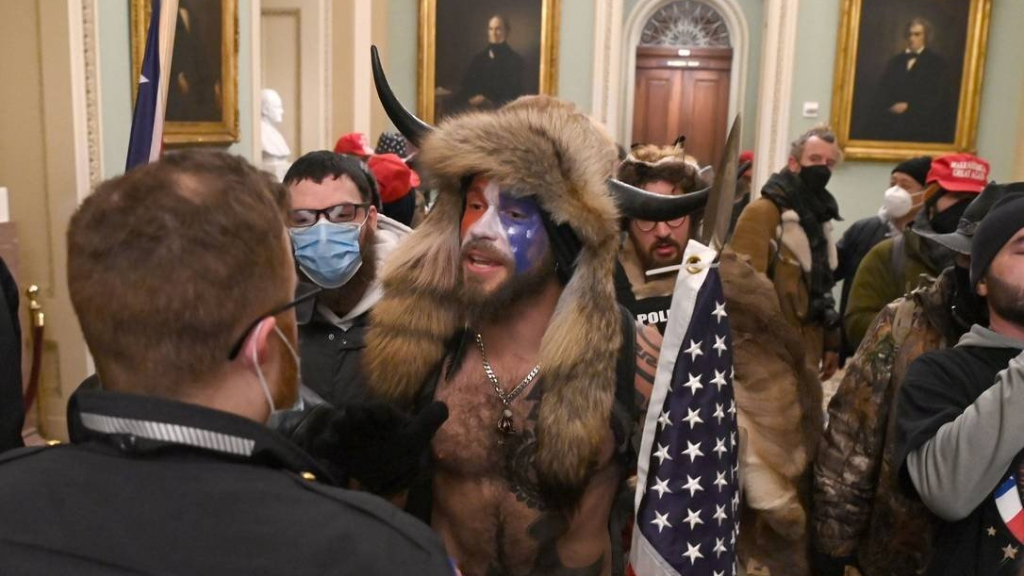
It wasn’t just the physical structure that was breached; our core values of justice, equality, freedom, and democracy were violated.
Attempting to overturn the results of a lawful election threatens the basic premises of democracy that our country was founded upon. Doing so at the urging of the leader of the free world, who has continuously challenged what it means to be American — both literally and figuratively — threatens the very fabric of our society.
We cannot unsee those images, and we cannot undo the events that took place on January 6. However, silence is complicity. History has taught us that much, so we must use this moment as a catalyst for change.
The Other America
On March 14, 1968, as the country was in the midst of the civil rights movement, Martin Luther King, Jr. gave a speech titled “The Other America,” in which he described the bifurcation of this nation into “literally two Americas.”
In his speech, King spoke of one America in which “millions of people have the milk of prosperity and the honey of equality flowing before them” and “freedom and human dignity for their spirits.” In the first America, “children grow up in the sunlight of opportunity.”
In the other America, however, “a daily ugliness…transforms the buoyancy of hope into the fatigue of despair.”
The difference between the two Americas King described can be found in the inequality between races and the unjust treatment of Black people. So long as “racism still stands at the center of so much of our nation…there will be people walking the streets of life and living in their humble dwellings feeling that they are nobody, feeling that they have no dignity and feeling that they are not respected.”
Division and Discrimination
The rioters who stormed the Capitol on January 6 violated federal laws. This was not an example of the peaceful protests guaranteed to American citizens by our Constitution. Yet there was a stark contrast in the response to those who showed up ready to overtake a federal building and threaten the elected officials doing their public service to certify the next American president and those who marched demanding equal rights for Black Americans.
To quote a popular tweet that has been circulating, “We’re not asking for you to shoot them like you shoot us. We’re asking you to NOT shoot us like you don’t shoot them.”
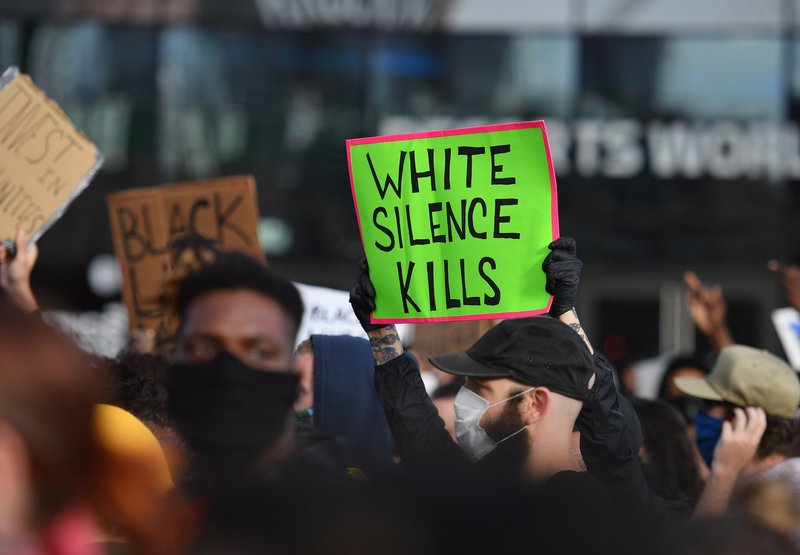
The levels of division and discrimination in this country continue to abound. January 6 wasn’t only about the presence of an armed mob spewing racism and hatred inside the People’s House. It wasn’t just about an administration that allowed intolerance, injustice, and a complete disregard for freedom and democracy to fester for four years before ultimately rising to the level we saw at the Capitol. It goes deeper than that.
The response to people who made clear their violent, unlawful intentions and threatened the core of our democracy was tepid compared to the brute force and calls for violence that met those who marched for Black lives in the spring and summer.
Over 50 years later, Martin Luther King, Jr.’s two Americas are still very much on display in our nation’s capital.
Justice for All People
It would be inaccurate to claim that what we saw on January 6 was not our America. As much as we may want to believe that something like this could never happen here, we know that it did. It happened in our America.
Perhaps that is not the whole story, though. It happened in One America. Perhaps we have lost sight of the Other America, the one in which we strive to live up to the ideals of our founders: “One nation, under God, indivisible, with liberty and justice for all.”
We must not remain silent. We must take sides and choose to fight for the America “where men and women are not persecuted because of their race, religion, or political views.” We have seen dark times before, and we have learned important lessons. It’s always darkest before the dawn.
Perhaps January 6 can be remembered as the dawn of a new day when we come together, united, and heed the call of those who came before us as we pledge to fight for dignity, equality, and justice for ALL people. Not just for the future of America, but for the future of the world.
Disclaimer: The views and opinions expressed here are those of the author and do not necessarily reflect the editorial position of The Globe Post.

